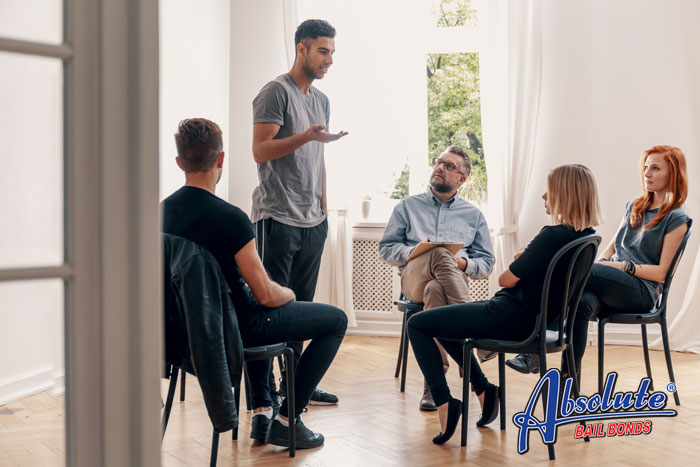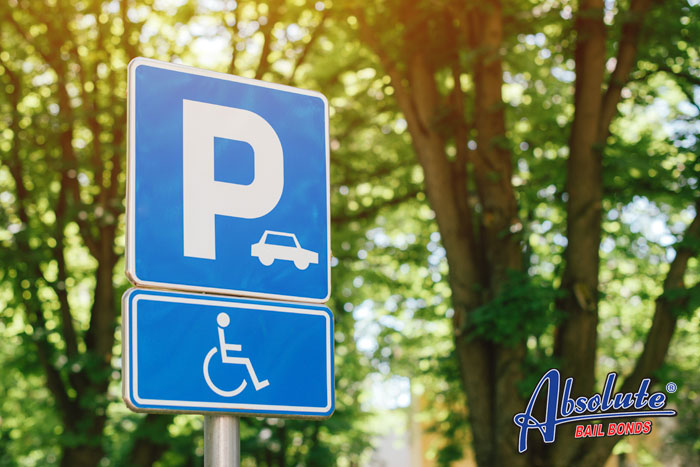
Misusing a Disability Placard in California
Disability placards aren’t something everyone in California can appropriate and use for their own purposes. Getting caught misusing a disability placard in California can land you on the wrong side of the law.
If you think you can misuse a disability placard and not get caught, you should think again. It’s easy for police to spot placard misuse. When they discover someone is misusing the placards, the police are usually quick to take action.
Disability placard misuse is dealt with in Vehicle Code 4461 VC. The law has multiple examples of how disability placards are not to be used. One such example is, “A person shall not lend a certificate of ownership, registration card, license plate, special plate, validation tab, or permit issued to him or her if the person desiring to borrow it would not be entitled to its use, and a person shall not knowingly permit its use by one not entitled to it.”
Other ways a disability placard can be misused include:
- Continuing to use a disability placard that has expired or that has been revoked
- Borrowing someone’s vehicle and using their placard even though you’re not disabled and they aren’t in the vehicle with you.
One could consider California’s Vehicle Code 4461 VC to be one of California’s wobbler laws, but instead of shifting between a felony and a misdemeanor, it could be handled as an infraction or a misdemeanor.
A majority of cases involving the misuse of a disability placard are handled as an infraction. This is good news since there is no jail time, only a fine. That being said the fine can be really steep. The amount can range from $250 to $1,000.
If the case is handled as a misdemeanor, jail will be one of the possible consequences. The maximum sentence is six months in jail and/or a fine that could be as large as $1,000. In some situations, the judge will order misdemeanor probation rather than sending the defendant to jail. It’s also possible that the defendant will have to perform some type of community service and/or seek counseling.
The good news is that you’ll have nothing to worry about provided you are in legal possession of a disability placard and are good about making sure it never expires.
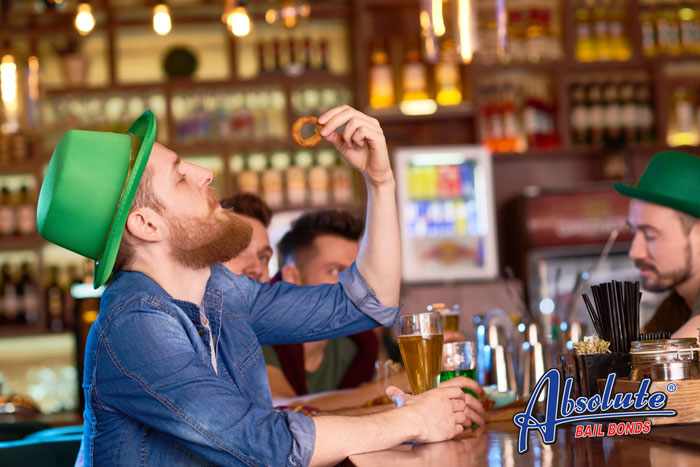
Be Smart. Don’t Drink and Drive on St. Patrick’s Day
Many people spend the entire year looking forward to St. Patrick’s Day. The holiday is a huge deal in some locations, particularly those that have a large Irish American population.
The great thing about St. Patrick’s Day is that the holiday is basically a 24-hour party. Many bars and restaurants run all sorts of special. Many cities host parades. Sports teams often wear special uniforms and have an assortment of events planned for the holidays.
It’s also a day when many people are arrested for drunk driving. Nothing ruins an otherwise fun day as getting arrested because you made the mistake of sliding behind the wheel after you’ve had to
much to drink on St. Patrick’s Day.
The police and court officials don’t care that you simply wanted to have a good time on St. Patrick’s Day. Their main concern is keeping California’s residents safe from drunk drivers.
Getting arrested for drunk driving on St. Patrick’s Day will ruin your immediate future. The judge won’t go lightly on you because you wanted to have a good time and celebrate a saint. If it’s the first time you’ve ever been convicted of drunk driving in California
If you’re convicted of DUI for a St. Patrick’s Day incident you will be charged with a misdemeanor and could spend up to 6 months in a county jail and be ordered to pay a $390-$1000 fine.
The sentencing for subsequent DUIs becomes increasingly more severe. If someone is injured as a result of you driving while intoxicated, you will face additional charges and also likely be named as the defendant in a civil lawsuit.
The best way to avoid being arrested for a DUI on St. Patrick’s Day is making sure you have a designated driver or calling a taxi/rideshare.
What you shouldn’t plan on doing is sleeping it off in your car. While this may seem like a perfectly good idea, if you’re spotted getting into your car after you’ve had too much to drink, there’s a chance an officer will decide that you intended to drive and arrest you. While a conviction for the intent to drive while intoxicated isn’t nearly as serious as an actual DUI, it’s still intense. The rule of thumb for an intent to drive drunk conviction is that the sentence is half of what you would get if you were charged with an actual DUI. So instead of serving 6 months in jail, the judge could sentence you to three months and/or charge you a $195-$500 fine.

Valentine’s First Date Safety Tips
Valentine’s Day is right around the corner. Those of us who are single often feel that the holiday is the perfect day to arrange a first date and hopefully strike up a romance. The problem is that some of us are so fixated on connecting romantically, that we sometimes overlook basic first-date safety measures and will find ourselves in a dangerous situation.
Drive Separately
These days, most of us go on first dates with people we don’t actually know. In many cases, it’s an internet connection that sounds interesting. No matter how nice and trustworthy that person might sound during your virtual conversations, you need to remember that you don’t fully know them. One of the best ways you can keep yourself safe is making sure that each of you drives separately to your Valentine’s Day date location.
Driving does more than simply prevent you from being located in a small space where you have very little control over things with a person you don’t know well. It also provides you with an easy and accessible means of escape if the date doesn’t go well.
If you don’t have your own car, use an Uber/cab/bus to get to the location.
Tell Your Friends About Your Plans
Secret first dates sound fun and exciting, especially on Valentine’s Day. The other nice thing about secret first dates is that you don’t have to fill your friends and family members in on all of the details if the date turns out to be a dud.
The problem with secret Valentine’s Day dates is that if no one knows where you are or what you’re doing, they won’t know that you could be in trouble. Let at least one trusted person know where you’re going and who your Valentine’s Day date is. They will provide this information to the police if something goes wrong.
Meet in Public
Your Valentine’s Day date doesn’t have to be in a noisy club or even a secluded forest glen. It should be in a public place where people can step in if things don’t go the way you like. If you start to feel uncomfortable during the date, alert someone who is nearby and they can help extract you from the situation.
Never Leave a Drink Unattended
Always keep an eye on your drink. You don’t want your date or anyone else who is nearby, to slip anything into it. If you have to leave your drink, order a new one. Don’t finish the one that was left by itself.
Let Someone Know When You Make it Home Safely
Let the friend/family member you told about the date know that you’ve made it home and are safe. This is a great opportunity to discuss your Valentine’s Day date and decide if this is a person you’re interested in seeing again.
What are your plans for this Valentine’s Day?
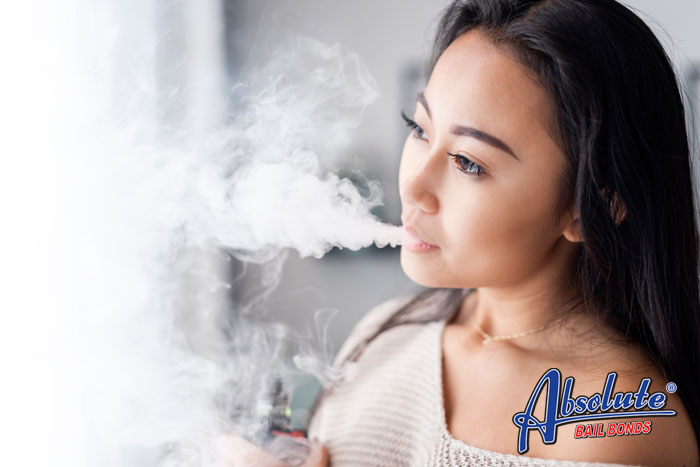
Vaping in California
Over the past ten or fifteen years, vaping has become extremely popular. There are several reasons for this, including the idea that vaping is cleaner, cheaper, and might be a little safer than smoking. The fact that you can get vapes in interesting flavors that simply aren’t possible with traditional cigarettes is another reason so many people have started vaping.
As vaping grows more popular the state feels increasing pressure to create vaping laws. These laws are very similar to smoking laws because there is a great deal of concern about the potential health risks.
While some of these vaping laws impart consumers, most are designed to crack down on the sale of e-cigs.
Additional taxes aren’t the only things business owners who sell vaping supplies have to worry about. The state has also set things up so that any business that markets e-cig and other vaping supplies has to be properly registered, which includes safety inspections. The registration fee must be paid every single year if the business wishes to continue selling e-cigs.
At this point, if you’re not 21 or older, you can’t purchase e-cigs are anything connected to vaping. The hope is that by raising the minimum age, fewer people will start vaping.
The places you’re allowed to vape are also restricted. Vapers are expected to follow the same rules as smokers. You aren’t allowed to smoke in/near government buildings, including schools. Additional places where you’re not allowed to vape include commercial warehouses, hotel lobbies, and stores. If you’re self-employed but routinely have clients in your office/home/workspace, you’re not allowed to vape there.
Getting caught vaping in an area where it’s prohibited will cost you hundreds of dollars.
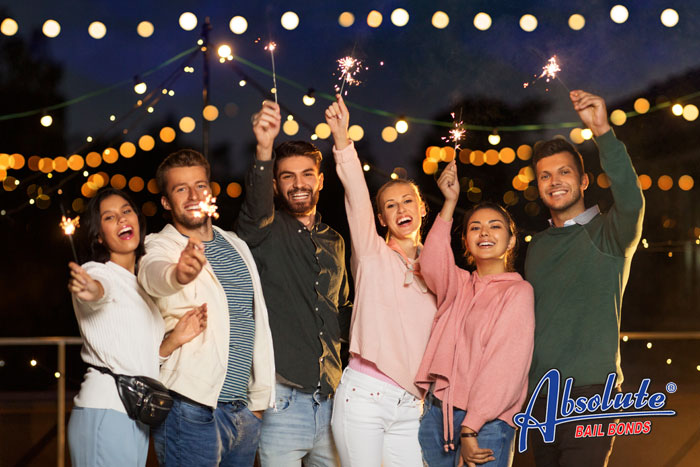
Stay Safe Going into the New Year
Celebrating at bars, restaurants, clubs, and community events is a lot of fun and a great way to create some spectacular memories, but it can also be dangerous. The good news is that there are steps you can take to protect yourself while making the holiday a memorable experience.
Pick a Group of Trusted Friends
There is safety in numbers which is why you should plan on going out with a group of people who are just as excited about going out as you are and who you trust. Before hitting town, decide on things like who is driving (or if you’re getting a rideshare car or cab home.) Agree that no matter what happens, everyone leaves each location with the others, that no one leaves anyone behind, and have a form of communication ready to go if someone does get separated from the group.
Limit Your Drinking
Yes, you want to have a good time, but don’t drink so much alcohol that you get into a fight with your friends, or your normally good judgment wavers. Know what your limit is and pace yourself accordingly. If you do imbibe in too much alcohol, make sure at least one member of your friend group is sober enough to watch out for you.
No matter what you’re drinking, never leave your drink unattended. If you do have to leave your drink, order a new one when you return to the table. Never drink from a glass that you’ve lost track of, no matter how temporarily.
Stick to Areas You’re Familiar With
New Year’s Eve isn’t really the night that you want to explore new locations. If you do want to go to a New Year’s Eve party that’s in a part of town you’re unfamiliar with, visit that area in the weeks leading up to the party. That gives you a chance to find the safest parking spaces, bus stations, cab stops, and walking routes.
Leave Your Valuables at Home
New Year’s Eve is not the time to be waving around a lot of cash or to show off the nice new jewelry you got for Christmas. Those things make you attractive to thieves and pick-pockets. Limit the amount of cash you have on you and keep your nicer items at home.
Practice Self-Situational Awareness
Self-situational awareness is a great way to prevent yourself from becoming a victim this New Year’s Eve. The entire time you are out, be hypervigilant about your surroundings and the people in them. Pay extra attention to anyone who is taking an extreme interest in you or who seems to appear everywhere you do.
Stay safe and have a wonderful time ringing in 2022.

Parents Worry About Their Kids Way More Than You’d Think
As a parent, don’t you always have a concern for your children? Even if they are well behaved and honest, parents’ concern for their child continues to linger no matter what. It’s all part of being a parent.
It’s important to always be reminded that any trouble your kid gets into, you as a parent can be held responsible and liable. You may need to pay fines and fees – fees for educational programs required by court, legal fees, and others. To avoid this stress and pain, keep an eye on your child whenever you can, but do not be too overbearing. A part of growing up for a child will include some rebellion, but if they can do this in ways that don’t include legal trouble, you’re golden. Take note of your parenting styles and how your child reacts – where do you need to loosen up? Where can you be more trusting?
No one expects them to be a perfect parent nor is there a perfect parenting guidebook to follow rule by rule. It’s going to be challenging, but it’s also going to be fun – until you get a call from the police (hopefully you don’t).
Now, if your child does get arrested, there is no need to call a bail bonds agency because minors are ineligible for bail (though they don’t stay in jail – they are still released back to the parents). However, if your child is 18 or older and calls you from jail because they indeed need bail help (they are now old enough) please do contact a bail bonds agency.
If you are in need of a bail bond don’t hesitate to call us for help. Absolute Bail Bonds in Victorville will quickly reunite you back together simply call us at (800)793-2245.

What You Should Know When you Need to Make Bail Bonds
When you sign a contract with Absolute Bail Bonds you’re entering into a written agreement with us that states in exchange for us posting your bail and helping secure your release from jail, you agree to appear at all of your scheduled court appearances and follow any other rules the court has attached to your bail.
For many people, a bail bond is the only way they will be released since they simply can’t come up with the money on their own.
If you find that you need to make a California bail bond, here is what you need to know.
Make sure the bail bonds company you’re about to work with is genuinely allowed to write a bail bond for you. There are some scam artists in the bail bond industry who are perfectly content to collect a 10% fee from you and disappear with your money, leaving you sitting in a cell and now in even more desperate financial straits than you were before contacting the felonious bail bonds agency.
Absolute Bail Bonds in San Bernardino has a history that spans several decades. We’re a fully licensed and insured bail bonds industry that already has a relationship with the court and jail system you’re currently dealing with.
Plan on talking to us. When you contact us, you should be prepared for a kind of two-way mini-interview process. We want to make sure that you’re comfortable with our process and we want to make sure that you’re a good risk. We have made this process easy by creating both phone and online consultations. Each of these consultations is completely free. Not only won’t we charge you for the consultation, but we also won’t pressure you into making an immediate decision. You can contact us 24/7.
Be prepared to read through the California bail bonds contract. This is yet another opportunity to ask us questions and make sure that you feel good about making a bail bond. You will have to present a valid ID when signing the contract. If necessary we can ask the booking officer to retrieve the ID from your personal belongings long enough for us to confirm that you are who you say are.
While there are sometimes things that slow down the process, we can usually have you released from jail in practically no time at all. It normally takes less than four hours. Make sure you have arranged for a ride home.
While we don’t require that each of our clients touches base with us every couple of days, we want you to feel free to contact us if you have any questions or concerns. We would far rather have you touch base with us than have you accidentally do something that will get you arrested for a bail violation.
For additional information, feel free to call 1-800-793-2245.

The Unlawful Taking of Pictures and Video Recording
Thanks to built-in cameras on smartphones, most of us have a camera at our disposal 24/7. We’re able to record everything. We use the phone camera for selfies, points of interest, and to record the actions of others. We’ve grown so accustomed to taking photos and videos of everything that we rarely stop and think about the fact that there are certain times, places, and situations when taking pictures and video recordings is actually against the law.
Learning that there are cases where a person has broken the law with videos or photos they’ve snapped can make you have second thoughts about using your camera. The good news is that the odds are pretty good that you’re not going to record anything that will break the law. Both federal and state laws are written in a manner that allows you to legally take a photo of anything that’s plainly visible. You’ll be pleased to learn that this includes federal buildings and even police officers who are working.
You’re also legally allowed to take photos and videos of things that can be seen from public property. For example, as long as you can do so from the road, you’re allowed to photograph an interesting-looking barn.
If you’re on private property, the property owners get to make rules about what you can and can’t take photos/videos of. For example, if snapping a few shots of the barn requires you to walk across a private hayfield and jumping a fence, the property owners could insist that you destroy the images and also file trespassing charges against you. The same is true if you walk up to someone’s house and start snapping pictures or videos through their windows. You’re not legally allowed to take photos or videos of a person (or their belongings) if the property owner had a reasonable expectation of privacy.
If you’re caught taking photos or videos in an area where the property owner had a reasonable expectation of privacy, they can file invasion of privacy charges as well as trespassing charges against you. If you’re convicted of invasion of privacy, the judge could sentence you to up to six months in a county jail and order you to pay a fine of $1,000. If this isn’t the first time you’ve been convicted of invasion of privacy, the sentence could double.
The best way to avoid getting into trouble while you shooting pictures or videos is to make sure you’re feet are always firmly planted on public property.

Probation and Parole. What’s the Difference?
If you’re confused about the difference between probation and parole, you’re not alone. Most people don’t really know what the difference is between the two until they get into trouble with the law.
While you’re on probation, you’re still technically in police custody, but you have a great deal more freedom than you’d enjoy if you were in jail. There will be some rules attached to your probation, breaking any of these rules will result in you losing your probation status and being locked in a cell. One of the big things you’ll have to do is routinely meet with your probation officer who will insist that you prove you’re following the rules.
Many people are put on probation without ever seeing the inside of a jail cell.
Parole is both similar to probation and different. The best way to think about parole is that it is kind of like is a kind of parental supervision. It’s sort of like that stage where sorta living on your own but still relying on your parents. When you’re granted parole, the parole board is saying that while you no longer have to be in jail, you’re also not ready for total independence.
Legally speaking, parole is a conditional release from prison. It is a way of getting out of prison even though you still have some time left to serve. Other than the fact that you have spent time in prison, parole and probation are very similar. Though the rules of parole are sometimes stricter and you sometimes have to work harder to prove that you should be granted parole. One of the big issues connected to parole is admitting your guilt and showing that you understand why your actions were wrong.
It isn’t unusual for restrictions and requirements to be attached to both parole and probation, though those restrictions vary from one case to the next. In most cases, people who are serving both parole and probation will have their travel restricted, will have to submit to drug (and sometimes alcohol) testing, are sometimes required to attend counseling sessions, are sometimes required to be at home during specific times of the day/night, and will sometimes be electronically monitored.
If you are serving either probation or parole, it’s important to remember that you haven’t been given a get out of jail free card. A single misstep, even a little one, could result in your being incarcerated.


